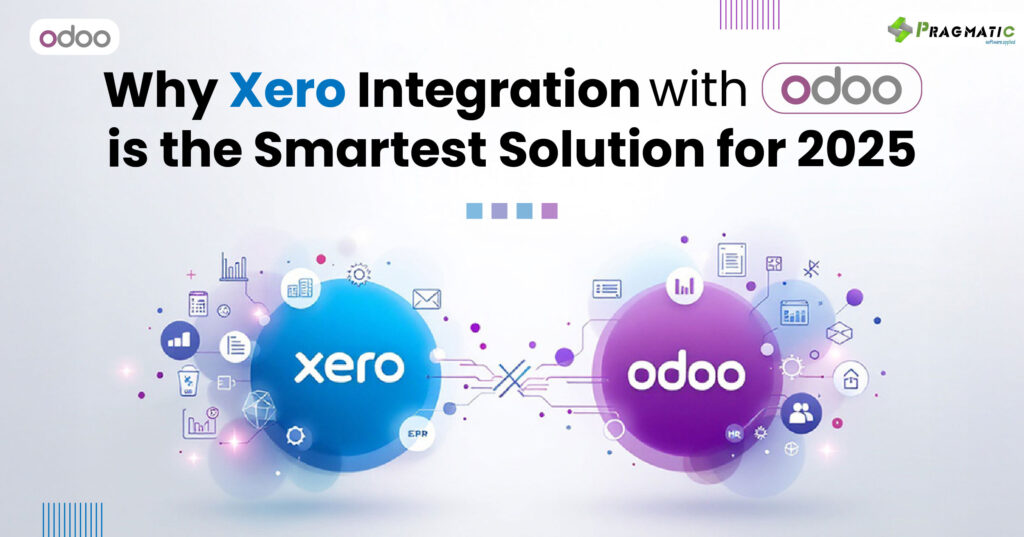

The modern business world depends on efficiency and accuracy in managing resources. With the increasing complexities of accounting, inventory, and customer data, combining Xero and Odoo has become more compelling than ever. If you’re seeking to streamline your workflows, integrating these two platforms can be a game-changer in 2025.
Bridging Xero with Odoo isn’t just a technical shortcut—it’s a smarter way to manage business. This integration synchronizes critical data between a leading accounting tool and an all-in-one ERP system, letting business owners eliminate redundancies and gain actionable insights.
Xero is a cloud-based accounting software designed for small- to medium-sized businesses. It simplifies payroll, tracks financial metrics, and ensures compliance. Popular for its user-friendly interface, Xero enables businesses to automate tasks like invoicing and reconciliation, cutting down on manual work.
Odoo stands out as a versatile ERP system with various modular features tailored to meet business needs. From inventory and sales to HR and CRM, Odoo is customizable, making it a suitable solution for organizations of all sizes.
The integration between Xero and Odoo often relies on APIs for a seamless connection. Data synchronization ensures that financial, inventory, and customer information syncs automatically. Typical workflows include mapping tax configurations, importing invoices, and tracking expenses. This synergy between the two platforms minimizes data errors and provides businesses with a unified interface.
The combination of Xero and Odoo isn’t just about streamlining operations—it’s about laying the groundwork for growth and sustainability. Let’s go over the practical advantages.
Manually entering the same data in multiple systems is an outdated and error-prone approach. Integrating Xero with Odoo automates data entry, ensuring consistency across all departments. For example, importing invoices directly into Xero saves time and reduces the risk of errors.
Learn more about the Xero Accounting integration with Odoo.
Real-time data synchronization turns static numbers into actionable insights. With up-to-date reporting, businesses can make informed decisions quickly—whether it’s evaluating profits or predicting inventory needs.
Automation reduces operational overhead by freeing up employees to focus on strategic work. Businesses save significant time by relying on predefined workflows and synchronization, offering better productivity without requiring manual intervention.
In 2025, various tools and modules enhance the integration of Xero with Odoo. Each comes with its own features, designed to meet specific business needs.
This module enables businesses to share tax rates, contacts, and invoices effortlessly between Xero and Odoo. It’s a great option for companies looking for a straightforward data export/import solution.
A centralized dashboard is a key highlight of this application. It simplifies advanced accounting tasks like tax management and offers robust support for aligning Xero accounts with Odoo’s ERP features.
Explore the official Pragmatic Odoo XERO Connector to automate your workflows effectively.
While the benefits are clear, the path to achieving a smooth integration isn’t always straightforward. Here’s how businesses can prepare.
Start by evaluating your current workflows. Identify which data sets—like invoices, inventory, or contacts—require synchronization. Then, assess the compatibility of the chosen tools with your existing systems.
Data mapping errors are a common hurdle. For instance, tax rates in Xero may not match Odoo’s settings. To solve this, rely on automated mapping tools or manual mapping features provided in integration solutions.
Once workflows are aligned and tools are configured, run a thorough test. Ensure data is syncing correctly between both systems. It’s also critical to train staff to make full use of new functionalities post-integration.
Explore practical tips on Odoo-Xero integration challenges and solutions.
Integrating Xero with Odoo is more than a feature—it’s an investment in business efficiency. This combination ensures streamlined accounting, insightful reporting, and scalable operations, making it a perfect fit for businesses in 2025. If you’re ready to take the next step, start by exploring the Pragmatic Odoo XERO Connector to transform your business workflows.
Leave a Reply
You must be logged in to post a comment.